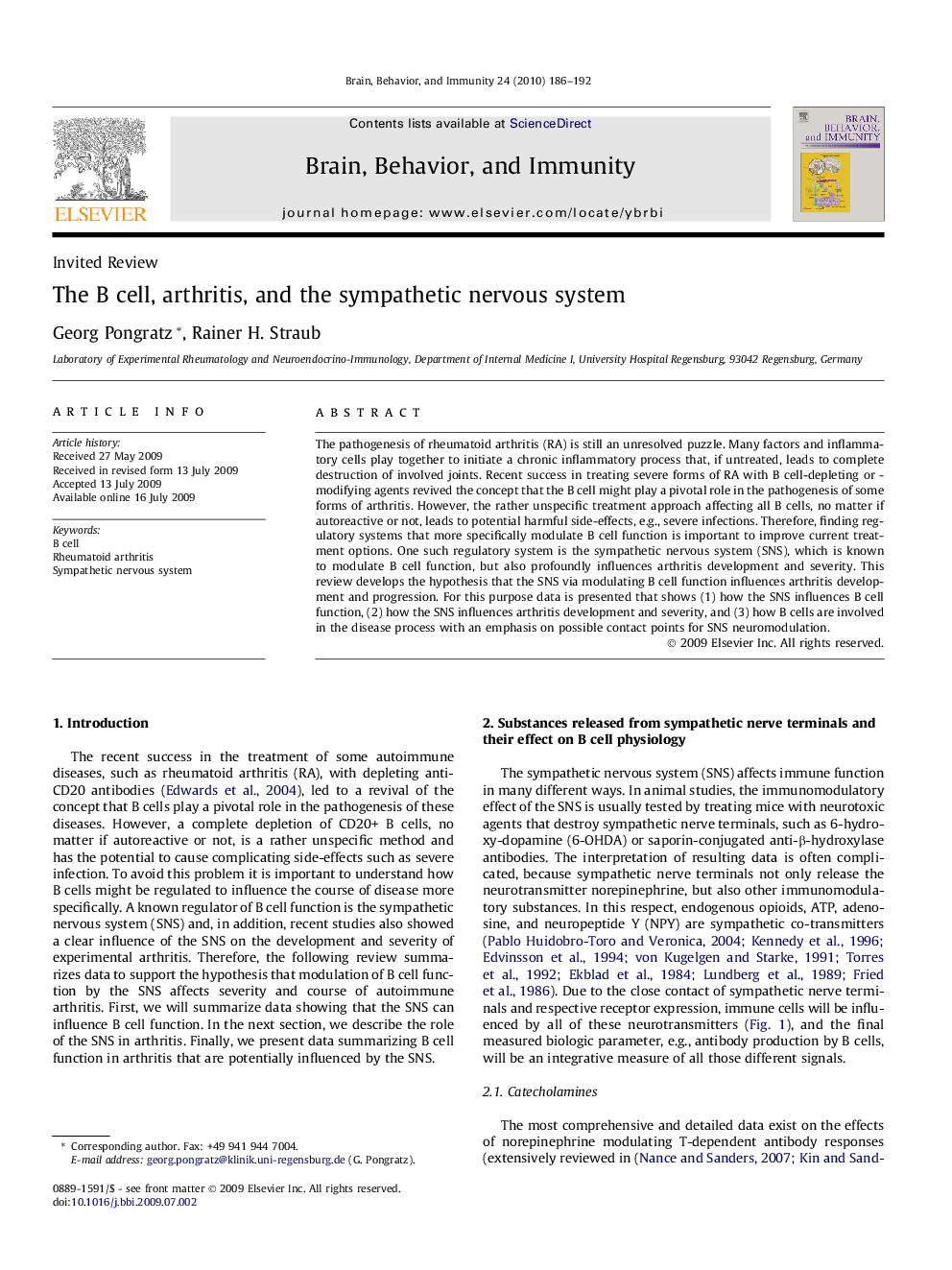| Article ID | Journal | Published Year | Pages | File Type |
|---|---|---|---|---|
| 922701 | Brain, Behavior, and Immunity | 2010 | 7 Pages |
The pathogenesis of rheumatoid arthritis (RA) is still an unresolved puzzle. Many factors and inflammatory cells play together to initiate a chronic inflammatory process that, if untreated, leads to complete destruction of involved joints. Recent success in treating severe forms of RA with B cell-depleting or -modifying agents revived the concept that the B cell might play a pivotal role in the pathogenesis of some forms of arthritis. However, the rather unspecific treatment approach affecting all B cells, no matter if autoreactive or not, leads to potential harmful side-effects, e.g., severe infections. Therefore, finding regulatory systems that more specifically modulate B cell function is important to improve current treatment options. One such regulatory system is the sympathetic nervous system (SNS), which is known to modulate B cell function, but also profoundly influences arthritis development and severity. This review develops the hypothesis that the SNS via modulating B cell function influences arthritis development and progression. For this purpose data is presented that shows (1) how the SNS influences B cell function, (2) how the SNS influences arthritis development and severity, and (3) how B cells are involved in the disease process with an emphasis on possible contact points for SNS neuromodulation.
